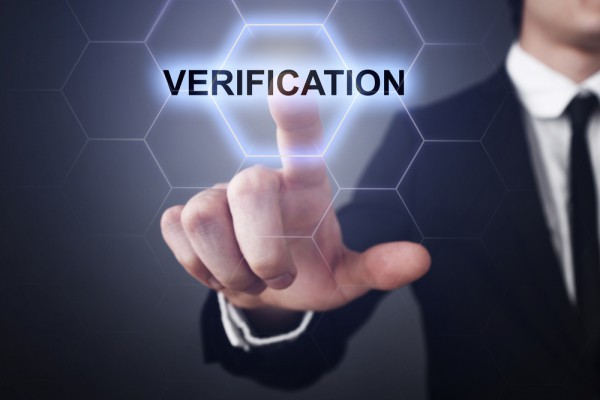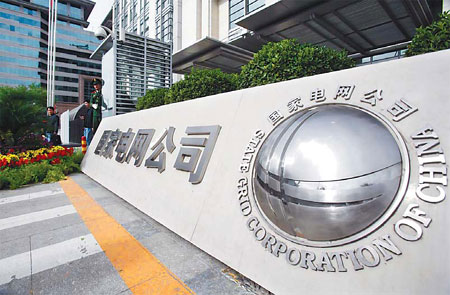In the dynamic and internationally-oriented business environment of Hong Kong, conducting due diligence on a potential partner, supplier, or client is not just prudent—it’s essential. Company verification, often the first step in this process, provides critical insights into a company’s legitimacy, financial health, and corporate standing. Fortunately, Hong Kong’s transparent regulatory framework makes this process systematic and accessible.
Why Verify a Hong Kong Company?
· Risk Mitigation: To avoid fraud, scams, and partnerships with shell companies.
· Investment Decisions: To assess the credibility and financial stability of a target company.
· Regulatory Compliance: To meet “Know Your Customer” (KYC) and anti-money laundering (AML) obligations.
· Partnership Assurance: To confirm the legal status and good standing of a potential partner before signing contracts.
Key Steps and Sources for Company Verification
1. Search the Official Companies Registry (ICRIS)
The Integrated Companies Registry Information System (ICRIS) is the primary and most authoritative source for company data in Hong Kong. Managed by the Companies Registry, this online portal provides access to fundamental information about any registered Hong Kong company.
· What you can find:
· Company Name and Registration Number
· Company Status (e.g., “Live”, “Dissolved”, “Deregistered”) – This is crucial.
· Date of Incorporation
· Registered Office Address
· Information on Directors and Company Secretary
· Certificate of Incorporation and Business Registration Certificate (for a fee)
· How to access: You need to register for an ICRIS online account. Basic information is available for free, while more detailed documents require payment of a small fee.
2. Verify the Business Registration Certificate (BRC)
Every company operating in Hong Kong must have a valid Business Registration Certificate issued by the Inland Revenue Department (IRD). The BRC displays the company’s name, registration number, and the validity period of the certificate. Ensuring it is current is a basic check.
3. Analyze Financial Statements (for Limited Companies)
While private companies’ detailed financial statements are not always public, Hong Kong law requires companies to file an Annual Return (Form NAR1) each year. For smaller private companies, this may include simplified reporting. However, for a deeper financial health check, you can:
· Request financial statements directly from the company.
· Check if the company has filed any charges (e.g., mortgages) against its assets, which is public record in ICRIS.
4. Check for Litigation and Legal Proceedings
While not consolidated in a single database, you can check:
· The Hong Kong Judiciary website for court case searches.
· The Official Receiver’s Office for winding-up and bankruptcy records.
5. Conduct On-the-Ground Due Diligence
For high-stakes engagements, consider:
· Visiting the company’s registered office.
· Checking industry-specific licenses and memberships.
· Using the services of professional investigative firms or law firms in Hong Kong for a comprehensive background check.
Red Flags to Watch Out For
· Mismatched Information: The company’s website, business card, or invoice address does not match its registered office address.
· Suspended or Dissolved Status: The company is not in “Live” status in ICRIS.
· Expired Business Registration Certificate.
· Nominee Directors with No Track Record: A company where all directors appear to be nominal, with no other business history.
· Unverifiable Physical Presence: No verifiable office, landline phone number, or staff.
Company verification in Hong Kong is a straightforward yet powerful process, largely thanks to the transparency of the ICRIS system. By systematically checking the official records, businesses and investors can significantly reduce their risks, build trust with legitimate partners, and make informed decisions in one of the world’s most competitive markets. A small investment of time and resources in due diligence can prevent substantial financial and reputational losses down the line.
Company Registration Authorities in China: A Guide to SAMR and Beyond
Navigating the business landscape in China requires a clear understanding of its administrative framework. Contrary to systems in many Western countries, company registration in China is a centralized and hierarchical process, with the State Administration for Market Regulation (SAMR) at its apex. This guide explains the key authorities responsible for company registration in the People’s Republic of China.
The Primary Authority: State Administration for Market Regulation (SAMR)
The State Administration for Market Regulation (SAMR, 国家市场监督管理总局) is the supreme body overseeing market regulation, enterprise registration, and intellectual property rights in China. Established in 2018, it consolidated several previous agencies to create a more streamlined regulatory environment.
SAMR’s key responsibilities include:
· Company and business registration.
· Market supervision and regulation.
· Anti-monopoly enforcement.
· Product quality and food safety supervision.
· Management of intellectual property (patents, trademarks).
· Standardization and certification.
The Local Implementation: Administration for Market Regulation (AMR)
While SAMR sets national policy, the actual registration process is handled by its local branches. These are known as Administrations for Market Regulation (AMRs) at the provincial, municipal, and district/county levels.
· For a foreign company registering in Shanghai: You would submit your application to the Shanghai Municipal Administration for Market Regulation.
· For a small domestic company in a Beijing district: You would go to the AMR of that specific district.
These local AMRs are the direct points of contact for businesses. They review application materials, issue the Business License (营业执照), and maintain local company registries.
The “One-Window” System: Streamlining the Process
To improve efficiency, China has widely implemented a “One-Window” (一窗通) service system. While the AMR remains the ultimate approving authority, this system allows applicants to submit all required documents—including those for taxes, social security, and corporate seals—through a single online or physical portal. This significantly simplifies what was once a multi-departmental process.
Other Specialized Regulatory Bodies
Depending on the industry, a company may need approvals from other specialized authorities before obtaining its business license from the AMR. These are not registration authorities per se, but their permits are prerequisites.
· Financial Sectors (Banking, Insurance, Securities): Require pre-approval from regulators like the China Banking and Insurance Regulatory Commission (CBIRC) and the China Securities Regulatory Commission (CSRC).
· Healthcare and Pharmaceuticals: Need licenses from the National Medical Products Administration (NMPA).
· Cultural and Media Sectors: May require permits from the National Radio and Television Administration (NRTA) or the Ministry of Culture and Tourism.
The Core Document: The Business License
The ultimate proof of successful registration is the Business License (营业执照) issued by the local AMR. This document contains critical information such as:
· Unified Social Credit Code (USCC) – the company’s unique 18-digit identifier.
· Company Name (in Chinese)
· Legal Representative
· Registered Capital
· Business Scope
· Address and Date of Establishment
In summary, the company registration system in China is a tiered structure led by the State Administration for Market Regulation (SAMR) and executed by its local Administrations for Market Regulation (AMRs). Understanding this hierarchy and leveraging the streamlined “One-Window” system is crucial for any entrepreneur or enterprise looking to establish a legal entity in China. Proper registration with the AMR is the foundational step for lawful operation and long-term success in the Chinese market.
Open a Company in China in 2025
The landscape for foreign investment in China is continuously evolving. As we look towards 2025, the process of establishing a company remains a strategic gateway to the world’s second-largest economy, but it requires navigating new opportunities, digital frameworks, and regulatory nuances. This guide provides a roadmap for what to expect when opening a company in China in 2025.
Why China in 2025? The Evolving Value Proposition
Beyond the massive market size, China’s value proposition is maturing:
· Digital-First Ecosystem: Seamless integration into the world’s most advanced digital payment, e-commerce, and social media landscape.
· Supply Chain Resilience: While still a manufacturing powerhouse, the focus is shifting to high-tech, automation, and resilient supply chain solutions.
· Policy Tailwinds: Continued government support for foreign investment in prioritized sectors like renewable energy, advanced manufacturing, AI, and biotechnology.
· Consumption Upgrade: A growing middle class with increasing purchasing power and demand for high-quality imported goods, niche brands, and services.
Step-by-Step: The Company Establishment Process in 2025
The core process remains, but has become increasingly digitized and streamlined.
1. Pre-Registration: Planning & Preparation
· Choose Your Entity: The Wholly Foreign-Owned Enterprise (WFOE) remains the most common and independent choice for most businesses. Representative Offices (for liaison activities) and Foreign-invested Partnership Enterprises (FIPEs) are other options for specific needs.
· Define Business Scope: This is critical. Your stated business scope on the营业执照 (Business License) dictates your permitted activities. It must be precise and aligned with the 2025 Negative List, which outlines sectors restricted or prohibited to foreign investment.
· Secure a Registered Address: You must have a physical, non-virtual office address for registration. This is a legal requirement for obtaining a business license.
2. The Digital-First Registration Process
China has fully embraced a “One-Window System” (一窗通), which integrates applications for multiple departments into a single online portal.
· Company Name Pre-approval: Submit proposed names via the online Administration for Market Regulation (AMR) system.
· Submit Electronic Documents: The core application is submitted online, including Articles of Association, legal representative and director information, and registered address proof.
· Receive Your Business License: Upon approval, you will receive a digital and/or physical copy of your Business License (营业执照). This includes your unique Unified Social Credit Code (USCC), your company’s national ID.
3. Post-Registration Formalities
The license is just the beginning. Key next steps include:
· Company Chop (Seal) Carving: Legally carve and register your company’s official seal, financial seal, and legal representative seal with the Public Security Bureau.
· Bank Account Opening: Use your Business License and chops to open a corporate RMB basic account.
· Tax Registration: Finalize your registration with the State Taxation Administration to obtain tax clearance certificates and determine your taxpayer status.
· Social Security & Housing Fund Registration: Register with the local authorities to fulfill your obligations for employees.
Key Trends & Considerations for 2025
· Enhanced Digital Scrutiny: Be prepared for thorough online verification of documents and ultimate beneficial ownership (UBO) information.
· Data Compliance is Paramount: The Personal Information Protection Law (PIPL) and Data Security Law (DSL) are strictly enforced. A data compliance strategy is no longer optional but a core business requirement.
· Environmental & Sustainability Standards: “Green” credentials and compliance with China’s dual-carbon goals (碳达峰, 碳中和) can be a significant advantage, especially in manufacturing.
· Talent Competition: Attracting and retaining skilled talent, particularly those with cross-border experience, remains a key challenge and cost factor.
Opening a company in China in 2025 is more accessible than ever due to digitalization, but the regulatory environment is more sophisticated. Success will depend on:
· Thorough Due Diligence: Deeply research your sector’s alignment with the Negative List and industrial policies.
· A Long-Term Perspective: View market entry as a strategic, long-term investment, not a quick win.
· Seeking Professional Help: Engaging with local consultants, lawyers, and accounting firms is highly recommended to navigate the legal complexities, ensure data compliance, and avoid costly mistakes.
The door to the Chinese market is open, but walking through it successfully in 2025 requires a well-informed, compliant, and digitally-savvy approach.
Hong Kong’s Corporate Titans: The Pillars of a Global Financial Hub
Hong Kong’s skyline, a breathtaking forest of glass and steel, is a physical manifestation of its economic might. This city is not just a tourist destination; it is a pulsating heart of global finance, trade, and innovation, home to some of the world’s most influential and valuable companies. These corporate titans span diverse sectors, from banking and property to logistics and technology, forming the backbone of the city’s economy and shaping its global identity.
The Financial Powerhouses
At the core of Hong Kong’s economy lies its formidable financial sector, anchored by banking giants and a world-leading stock exchange.
· HSBC Holdings PLC (滙豐控股): Founded in Hong Kong and Shanghai in 1865, HSBC is synonymous with the territory’s financial system. It is one of the world’s largest banking and financial services organizations, with a sprawling international network. Its iconic headquarters in Central dominates the harbor front, symbolizing its deep-rooted presence.
· AIA Group (友邦保險): As the largest independent publicly listed pan-Asian life insurance group, AIA is a cornerstone of the region’s financial security. With a presence in 18 markets across Asia-Pacific, its phenomenal growth is intricately linked to the rising wealth and insurance demand in the region.
· Hong Kong Exchanges and Clearing Limited (HKEX) (香港交易及結算所有限公司): HKEX operates one of the world’s major exchange groups. It is a key gateway for capital flowing into and out of China, hosting a massive number of listings from both mainland Chinese companies (H-shares) and international firms.
The Property and Conglomerate Dynasties
Hong Kong’s scarce land and dense population have given rise to immensely powerful property developers, many of which have evolved into sprawling conglomerates.
· CK Hutchison Holdings (長江和記實業) & CK Asset Holdings (長江實業集團): Controlled by veteran tycoon Li Ka-shing, these sister companies represent a vast empire. CK Hutchison has global interests in ports, retail (e.g., Watsons), infrastructure, and telecommunications, while CK Asset is focused on property development and investment.
· Sun Hung Kai Properties (新鴻基地產): As one of Hong Kong’s largest property developers, SHKP is responsible for shaping much of the city’s urban landscape, from luxury residential towers to massive shopping malls and commercial complexes like the International Commerce Centre (ICC).
· Swire Pacific (太古集團): A diversified conglomerate with a history stretching back over 150 years, Swire has major interests in property (e.g., Taikoo Shing), aviation (it is a major shareholder in Cathay Pacific), beverages (Swire Coca-Cola), and marine services.
Logistics and Utilities: The Arteries of Commerce
Keeping a global hub running requires critical infrastructure companies.
· Cathay Pacific Airways (國泰航空): As Hong Kong’s flag carrier, Cathay Pacific has been instrumental in connecting the city to the world, establishing it as a premier international aviation hub.
· MTR Corporation (香港鐵路有限公司): Far more than just a subway operator, the MTR is a model of efficiency and a major property developer. Its rail network is the lifeblood of the city, and its business model is studied worldwide.
The New Guard: Technology and Innovation
While traditional sectors dominate, new tech giants have also established a significant presence.
· Tencent (騰訊): Although headquartered in Shenzhen, the Chinese tech behemoth has a massive and growing presence in Hong Kong, with its shares being a heavyweight constituent of the HKEX. Its influence in gaming, social media, and fintech is deeply felt in the city.
· Alibaba Group (阿里巴巴集團): Following its secondary listing in Hong Kong in 2019, Alibaba has further cemented the city’s status as a fundraising hub for Chinese tech giants. Its presence underscores the deep financial ties between Hong Kong and mainland China.
The largest companies in Hong Kong are more than just businesses; they are institutions that define the city’s character and drive its prosperity. They represent a unique blend of deep-rooted, family-controlled conglomerates and dynamic, globally-oriented financial and tech firms. Together, they form a resilient and powerful economic ecosystem, ensuring that Hong Kong remains a formidable force in the global economy for years to come.
Zero Audit in Hong Kong: A Strategic Tool for Business Compliance and Efficiency
In the dynamic business landscape of Hong Kong, maintaining robust financial governance is paramount. For many small and medium-sized enterprises (SMEs) and dormant companies, the concept of a “Zero Audit” emerges as a critical aspect of annual compliance. Contrary to what the name might imply, it does not mean the absence of an audit requirement. Instead, it represents a formal audit process for companies with no or negligible transactions during the financial year.
What is a Zero Audit?
A Zero Audit, formally known as an audit of dormant accounts or a nil-transaction audit, is a statutory audit conducted by a Certified Public Accountant (CPA) for a company that has had no significant accounting transactions in a given financial period. The outcome is an unqualified audit report stating that the financial statements present a true and fair view of the company’s financial position, which, in this case, shows no activity.
Is Your Company Eligible?
A company in Hong Kong is generally considered dormant if it has no “significant accounting transactions” during the period. Significant transactions are those that are recorded in the company’s accounting records and are vital to assessing its state of affairs. Examples of non-significant transactions include:
· Payment of fees for the maintenance of the company (e.g., company secretary, registered address).
· Payment of statutory fees, such as business registration renewal.
· Payment for shares issued by the company.
If a company’s only transactions throughout the year fall into these categories, it may qualify as dormant and be eligible for a Zero Audit.
The Legal Framework and Process
Under the Hong Kong Companies Ordinance, all incorporated companies, regardless of their activity level, must prepare financial statements and have them audited each year. There is no exemption from the audit requirement based on size or turnover for private companies.
The process for a Zero Audit involves:
1. Engaging a Qualified CPA: The company must appoint a Hong Kong CPA firm to conduct the audit.
2. Preparation of Financial Statements: The company prepares a balance sheet, income statement (showing nil revenue), and other relevant statements, even if they reflect zero activity.
3. Audit Examination: The auditor will examine the company’s bank statements, accounting records, and supporting documents to verify the absence of significant transactions.
4. Issuance of Audit Report: Upon satisfactory review, the auditor issues a clean audit report confirming the dormant status. This report is then submitted to the Inland Revenue Department (IRD) alongside the Profits Tax Return.
Key Benefits of a Zero Audit
· Statutory Compliance: It fulfills the mandatory requirement under the Companies Ordinance, helping you avoid penalties and legal complications.
· Corporate Governance: It maintains a clean and formal record of the company’s inactive status, which is beneficial for future due diligence.
· Operational Readiness: Keeping the company in “dormant but compliant” status allows for a swift resumption of operations when business opportunities arise, without the burden of rectifying past non-compliance.
· Enhanced Reputation: A consistent record of compliance strengthens the company’s credibility with banks, potential investors, and partners.
A Zero Audit is not an optional formality but a mandatory compliance step for inactive companies in Hong Kong. It is a streamlined and cost-effective process that ensures your business remains in good standing with the authorities. Proactively engaging with a professional firm to handle your Zero Audit is a strategic decision that safeguards your corporate integrity and ensures peace of mind, allowing you to focus on future growth opportunities when the time is right.
The General Seal of a Company in Hong Kong: Requirements and Standard Sizes
In Hong Kong, the general seal (often referred to as the common seal) is a metal stamp that represents the company’s official signature. While its mandatory use has been abolished under the new Companies Ordinance (Cap. 622), it remains a vital tool for executing certain deeds and formal documents, and many companies continue to use it for important contracts for added solemnity.
What is the General Seal?
The general seal is a physical embossing seal that typically impresses the company’s name onto a document. Its use is governed by the company’s Articles of Association. Historically, it was mandatory for a company to have a common seal to execute documents. However, the Companies Ordinance (Cap. 622) modernized this requirement.
Key Changes under the New Companies Ordinance (Cap. 622)
· Abolition of Mandatory Use: Since March 2014, it is no longer a legal requirement for a Hong Kong company to have a general seal.
· Execution of Documents: A company can now execute a document by having it signed by either:
1. Two authorized signatories (e.g., two directors or a director and the company secretary); or
2. By a director of the company in the presence of a witness.
· Continued Relevance: Despite not being mandatory, the seal is still used for certain transactions, such as executing deeds (e.g., property transactions, certain powers of attorney) where a seal is traditionally expected. The company’s Articles of Association may also specify its use.
Standard Sizes for a General Seal in Hong Kong
There is no legally prescribed size for a general seal. The size is a matter of practicality and convention. The most common and widely accepted size is:
38mm (1.5 inches) in diameter.
This size is considered the standard because:
· It is large enough to be clearly visible and legible.
· It fits neatly in the margin or signature area of most standard documents (e.g., A4 and legal-size paper).
· It is the size most commonly stocked and recommended by seal manufacturers and corporate service providers in Hong Kong.
Other Available Sizes: While 38mm is the standard, companies can order seals in other sizes based on preference or specific needs:
· Smaller Sizes: 25mm or 30mm. These might be used if a company wants a less obtrusive seal or for specific types of stationery.
· Larger Sizes: 45mm or 50mm. These are less common but may be used for larger certificates or ceremonial documents.
What Information is on the General Seal?
The seal must clearly display the company’s name exactly as it appears on its Certificate of Incorporation. It can also include the company’s registration number, although this is not a legal requirement.
Example for a company with both English and Chinese names:
· Outer Ring: Company Name Limited
· Inner Ring: 香港公司名稱有限公司
· Center: Company Registration No.: 12345678
Example for a company with only an English name:
· Outer Ring: Company Name Limited
· Center: Company Registration No.: 12345678
While the general seal is no longer a mandatory requirement for Hong Kong companies, it remains a symbol of corporate authority. The standard size of 38mm (1.5 inches) is the practical choice for most businesses. When deciding whether to make a seal, a company should consider its intended use, the requirements of its business partners, and any specific provisions in its Articles of Association.
A Guide to Opening a Trading Company in China
Establishing a trading company in China is a strategic move for businesses aiming to access the world’s largest consumer market and manufacturing hub. The process has been significantly streamlined in recent years, but it requires careful planning and navigation of legal and regulatory frameworks. The most common structure for foreign investors is the Wholly Foreign-Owned Enterprise (WFOE).
What is a Trading WFOE?
A Trading WFOE is a limited liability company wholly owned by foreign investors. It is licensed to engage in:
· Domestic Trading: Buying and selling goods within China.
· Import: Sourcing products from overseas into China.
· Export: Selling Chinese products to international markets.
It is crucial to distinguish this from a Manufacturing WFOE (which produces goods) and a Consulting WFOE (which provides services).
Key Advantages of a Trading WFOE
· Full Control: 100% foreign ownership allows for complete control over operations, branding, and profits.
· Business Scope Flexibility: Can engage in a wide range of trading activities.
· Limited Liability: Shareholders’ liability is limited to their capital contribution.
· RMB Invoicing: Ability to issue official Chinese VAT invoices (Fapiao) to clients, which is essential for doing business with other Chinese companies.
· Direct Access to Market: Enables direct management of supply chains, marketing, and sales channels.
Step-by-Step Process to Establish a Trading WFOE
The process typically takes 2-4 months and involves multiple government agencies.
1. Planning and Preparation:
· Define Business Scope: Precisely define your trading activities (e.g., trading of electronic components, consumer goods, textiles). This will be written into your business license.
· Company Name Registration: Reserve a unique company name with the State Administration for Market Regulation (SAMR). The name should follow the standard format: [Name] + (City) + [Co., Ltd.].
· Registered Capital: Determine the amount of registered capital. While there is no official minimum, sufficient capital must be shown to cover setup and operational costs. This amount is a commitment to be paid into the company bank account over time.
· Registered Address: Secure a physical office address for company registration. Virtual offices are generally not acceptable for a trading license.
2. Document Submission and Approval:
· Articles of Association: Draft the company’s constitution.
· Application Materials: Prepare application documents, including legal representative and director information, for submission to the Commerce Bureau (MOFCOM) or its local branch for approval.
3. Post-Approval Procedures:
· Business License: Obtain the official business license from SAMR.
· Company Chop (Stamp): Engrave the official company seal, financial seal, and legal representative seal. These are legally binding in China.
· Bank Account Opening: Open a basic corporate bank account in China to inject registered capital and conduct daily operations.
· Foreign Exchange Registration: Register with the State Administration of Foreign Exchange (SAFE) to facilitate foreign currency transactions.
· Tax Registration: Register with the local tax bureau to determine your tax obligations (Corporate Income Tax, Value-Added Tax – VAT).
Key Requirements and Considerations
· Legal Representative: A WFOE must appoint a Legal Representative, who has significant authority and legal responsibility for the company.
· Office Lease: A genuine office lease contract is mandatory for registration.
· Annual Compliance: Companies must undergo annual inspection, audit, and tax filing.
· Import/Export License: After establishment, you must apply for import/export rights from customs.
Challenges
· Complexity: The process is bureaucratic and can be daunting without local knowledge.
· Capital Requirements: While more flexible than before, sufficient capital is still required.
· Ongoing Compliance: Strict adherence to Chinese accounting and tax laws is essential.
Setting up a Trading WFOE in China is a significant but rewarding investment. It provides a powerful platform to directly engage with the Chinese market. Due to the complexities, it is highly advisable to engage with a professional corporate service provider or law firm in China to guide you through the process efficiently and ensure full compliance.
How to Open an Export Company in China: A Guide for Foreign Investors
Establishing an export company in China is a powerful strategy for businesses aiming to source products from the world’s manufacturing hub. The most efficient and common structure for this purpose is the Wholly Foreign-Owned Enterprise (WFOE). This guide outlines the process, benefits, and key considerations for setting up a trading WFOE focused on export.
What is an Export WFOE?
An Export WFOE is a limited liability company wholly owned by foreign investors. It is licensed to engage primarily in:
· Export: Purchasing goods from Chinese suppliers and selling them to overseas buyers.
· Domestic Trading: Buying and selling goods within China (often necessary for sourcing).
· Import: Importing raw materials or goods for re-export, though its main focus is export.
It is distinct from a Manufacturing WFOE (which produces goods) and a Consulting WFOE (which provides services).
Key Advantages of an Export WFOE
· Full Control: 100% foreign ownership allows for complete control over sourcing, quality control, branding, and profits.
· Limited Liability: Shareholders’ liability is limited to their capital contribution.
· Direct Sourcing: Enables direct relationships with factories, eliminating intermediaries and reducing costs.
· Quality Management: Full oversight over production and quality assurance processes.
· RMB and Forex Transactions: Ability to pay suppliers in RMB and receive foreign currency from overseas clients.
· Global Brand Building: Establish your own brand for international markets.
Step-by-Step Process to Establish an Export WFOE
The process typically takes 2-4 months and involves multiple government agencies.
1. Planning and Preparation:
· Define Business Scope: Precisely define your activities (e.g., “wholesale and export of electronic products, textiles, and hardware”). This will be inscribed on your business license.
· Company Name Registration: Reserve a unique company name with the State Administration for Market Regulation (SAMR). The standard format is: [Name] + (City) + [Co., Ltd.].
· Registered Capital: Determine the amount of registered capital. While no official minimum exists for trading companies, a sufficient amount (e.g., USD $50,000 – $100,000+ equivalent in RMB) must be shown to convince authorities of your operational viability. This is a commitment paid over time.
· Registered Address: Secure a physical office address for registration. A virtual office is usually not acceptable.
2. Document Submission and Approval:
· Articles of Association: Draft the company’s constitution.
· Application Materials: Prepare documents (application form, legal representative info, director info, etc.) for submission to the local Commerce Commission (MOFCOM) for approval.
3. Post-Approval Procedures:
· Obtain Business License: Receive the official business license from SAMR.
· Engrave Company Chops: Engrave the mandatory company seals (公章 – Official Seal, 财务章 – Financial Seal, 法人章 – Legal Representative Seal). These are legally binding.
· Open Bank Accounts: Open a basic corporate RMB account and a foreign currency account at a Chinese bank.
· Customs Registration: Register with the China Customs Authority to obtain an Import-Export Code, which is essential for clearing goods.
· Tax Registration: Register with the local tax bureau to determine your tax obligations (Corporate Income Tax, Value-Added Tax – VAT). Note: Exported goods are often eligible for VAT rebates (退税), a significant benefit.
· Foreign Exchange Registration: Register with the State Administration of Foreign Exchange (SAFE) to facilitate foreign currency exchanges and transfers.
Key Requirements and Considerations
· Legal Representative: The company must appoint a Legal Representative, who has significant authority and legal responsibility.
· Office Lease: A genuine, physical office lease contract is mandatory.
· Ongoing Compliance: Companies must comply with annual reporting, monthly/quarterly tax filings, and annual audits.
· VAT Rebates: Understanding and applying for VAT rebates on exported goods is crucial for profitability. Professional accounting help is strongly recommended.
Challenges
· Complexity: The process is bureaucratic and can be daunting without local knowledge.
· Capital Requirements: Sufficient registered capital must be demonstrated.
· Cultural and Language Barriers: Navigating supplier relationships and regulations requires local expertise.
Setting up an Export WFOE in China is a significant commitment that offers unparalleled access to Chinese manufacturing and supply chains. It provides the control and flexibility needed to build a successful global export business. Due to the complexities of Chinese regulations, it is highly advisable to engage a reputable corporate service provider or law firm in China to ensure a smooth and compliant setup process.
What is a Memorandum of Association?
The Memorandum of Association is a legal document that is filed with the Companies Registry of Hong Kong during the incorporation process. It defines the company’s relationship with the outside world and sets out its fundamental characteristics. While the Articles of Association govern the internal management of the company, the Memorandum is its external charter.
Under the new Hong Kong Companies Ordinance (Cap. 622), the Memorandum for companies incorporated after March 2014 is a much simpler document. It primarily states that the subscribers wish to form a company under the Ordinance and agree to become members of the company, taking at least one share each.
Key Clauses in a Memorandum of Association (Pre- and Post-2014)
It’s crucial to understand the historical context. For companies incorporated under the old Ordinance (Cap. 32), the Memorandum contained several detailed clauses. The new Ordinance (Cap. 622) simplified it, moving many of those clauses into the Articles of Association.
For a company incorporated under Cap. 622, the Memorandum typically only contains:
1. Company Name: The official name of the company in English, Chinese, or both.
2. Subscriber Details: The names and addresses of the initial shareholders (subscribers) who are founding the company.
3. Shareholding: A statement that each subscriber agrees to take at least one share in the company.
4. Limited Liability: A statement that the liability of the members is limited (if applicable).
5. Subscriber Signatures: The document must be signed by each subscriber in the presence of a witness.
The following traditional clauses are now typically found in the Articles of Association under the new law:
· Registered Office Clause: Now a requirement under the Ordinance itself, the address is provided during incorporation and updated in the registry.
· Objects Clause: Modern companies under Cap. 622 have unlimited capacity and are not restricted by an objects clause in the Memorandum. Any restrictions on business activities can be placed in the Articles, but this is uncommon.
· Capital Clause (Authorized Share Capital): The concept of “authorized share capital” was abolished. The company’s share capital structure is now detailed in the Articles of Association.
· Liability Clause: Confirming that the liability of members is limited.
Sample Memorandum of Association for a Hong Kong Company Limited by Shares
THE COMPANIES ORDINANCE (CHAPTER 622) MEMORANDUM OF ASSOCIATION OF [COMPANY NAME LIMITED] (香港)[公司名稱有限公司]
1. Company Name The name of the company is “[COMPANY NAME LIMITED]” in English and “(香港)[公司名稱有限公司]” in Chinese.
2. Subscribers We, the undersigned persons, wish to form a company under the Companies Ordinance (Chapter 622) and agree to become members of the company, each taking at least one share.
Name and Address of Subscriber Number of Shares taken by Subscriber Signature of Subscriber Signature of Witness (with name and address)
John Smith Flat 1001, 10/F, Tower 1, 123 Queen’s Road Central, Hong Kong 1 _________________________ _________________________ Witness: Jane Doe Address: [Witness Address]
Zhang San Room 2002, 20/F, Lucky Plaza, 88 Nathan Road, Tsim Sha Tsui, Kowloon, Hong Kong 1 _________________________ _________________________ Witness: Li Si Address: [Witness Address]
Dated this ______ day of ______, 20.
A Regional Guide to China’s Banking Landscape
China’s banking sector, one of the largest globally, is not monolithic. It is a vast and complex ecosystem with distinct regional characteristics. While the “Big Four” state-owned banks have a nationwide presence, many other institutions have deep regional roots that are crucial to local economic development. Understanding this geography is key to grasping the full picture of Chinese finance.
The National Giants: Headquarters in Beijing
Unsurprisingly, China’s capital, Beijing, is home to the headquarters of the largest policy and state-owned banks that operate on a national and international scale.
* The Big Four State-Owned Commercial Banks: These are the pillars of the Chinese financial system.
* Industrial and Commercial Bank of China (ICBC) – The world’s largest bank by assets.
* China Construction Bank (CCB) – A leader in residential mortgages and infrastructure financing.
* Agricultural Bank of China (ABC) – Has a massive network focused on rural and agricultural financing but is also a major retail bank.
* Bank of China (BOC) – Traditionally the most international bank, specializing in foreign exchange and trade finance.
* Policy Banks: These are non-commercial banks tasked with supporting government economic policies.
* China Development Bank (CDB) – Funds large-scale infrastructure, urbanization, and national strategic projects.
* Agricultural Development Bank of China (ADBC) – Supports the development of agriculture and rural areas.
* Export-Import Bank of China (Chexim)– Promotes Chinese exports and international trade.
The Eastern & Financial Coast: Shanghai
Shanghai, China’s financial capital, hosts the headquarters of many major national commercial banks and financial market infrastructure.
* Bank of Communications (BoCom) – Historically one of the largest and considered a leader among joint-stock banks.
* China Merchants Bank (CMB) – A highly regarded joint-stock bank known for its innovative retail banking and wealth management services.
* Pudong Development Bank (SPDB)– A major Shanghai-based joint-stock commercial bank.
* Shanghai Pudong Development Bank – A key player in the city’s financial scene.
* Shanghai Headquarters of the People’s Bank of China (PBOC):While the central bank’s head office is in Beijing, its pivotal Shanghai headquarters oversees key financial markets.
The Pearl River Delta: Guangdong’s Powerhouses
The Guangdong province, a manufacturing and export hub, has fostered strong local banks that have become national players.
* Ping An Bank – Based in Shenzhen, it is part of the massive Ping An Insurance Group and is known for its tech-driven approach.
* China Guangfa Bank (CGB) – Headquartered in Guangzhou, it has a strong presence in Southern China.
* China Merchants Bank (CMB) – Though now a national giant, its roots are in Shenzhen, reflecting the region’s entrepreneurial spirit.
The Yangtze River Delta: Zhejiang & Jiangsu’s Regional Champions
This economically vibrant region is known for its robust private economy and highly successful city commercial banks.
* Bank of Nanjing – A leading city commercial bank known for its profitability and service to local SMEs.
* Bank of Ningbo– Another top-performing city commercial bank with an excellent reputation for governance and service.
* Hangzhou Bank – Serves the capital of Zhejiang province, a major tech hub.
The Western & Central Regions: Key Local Players
Banks in these regions are vital for funding local development, infrastructure, and the “Go West” policy.
* Bank of Chongqing – A major city commercial bank in the massive Chongqing municipality.
* Bank of Chengdu–Serves the capital of Sichuan province, a key economic center in Southwest China.
* Bank of Xi’an – A significant player in Northwestern China.
* Banks in Wuhan (e.g., Bank of Wuhan): Serve as important financial centers for Central China.
The Special Case: Hong Kong
As a Special Administrative Region (SAR) with a different financial system, Hong Kong operates as a global offshore RMB hub with its own set of banks.
* HSBC & Standard Chartered: International banks with deep historical roots and a significant presence in the city.
* Bank of China (Hong Kong) (BOCHK) – A key note-issuing bank and a major retail and commercial bank.
* Hang Seng Bank– A leading local bank, majority-owned by HSBC.
China’s banking system mirrors its economic geography. The national giants in Beijing provide the foundation, the commercial innovators in Shanghai and Shenzhen drive market trends, and the powerful regional banks in Zhejiang, Jiangsu, and elsewhere are the lifeblood for local SMEs and regional development. For anyone doing business in China, recognizing the strength and focus of these regional players is just as important as understanding the national giants.










